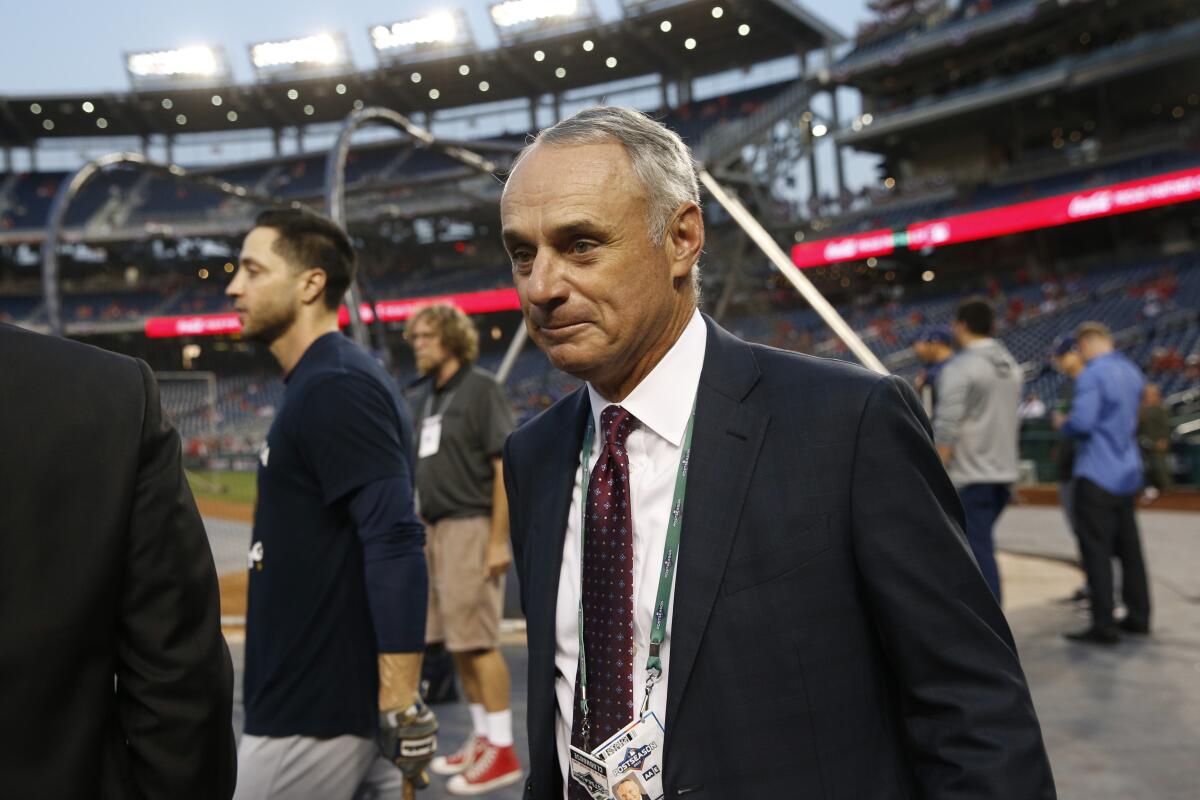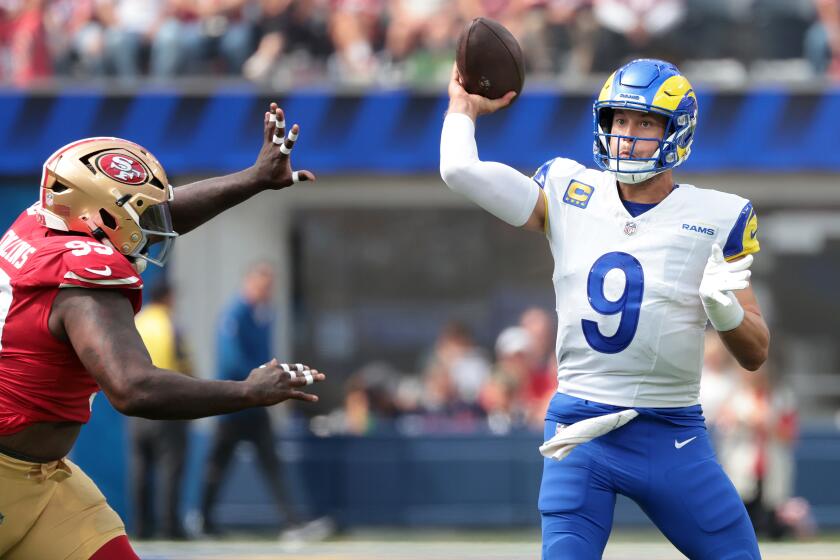MLB working with players on opioid situation

- Share via
HOUSTON — Major League Baseball commissioner Rob Manfred, in a reversal from his deputy’s recent comments on the league’s perception of opioid abuse among players, said baseball is not sheltered from the opioid epidemic sweeping the United States and the league is working with the MLBPA on an agreement to add opioid testing for next season.
“We understand that our workforce is a microcosm of society,” Manfred said before Game 2 of the World Series at Minute Maid Park. “There’s a societal problem. It’s not a good bet that we don’t have some level of issue and we’re working hard with them to find a way to be able to address it in a positive way through an agreement with the players’ association.”
Toxicology tests revealed Angels pitcher Tyler Skaggs had fentanyl and oxycodone in his system when he died in July. MLB doesn’t test players for opioids and other “drugs of abuse” without just cause. The only substances every player is tested for in MLB’s current joint drug agreement are the ones deemed performance enhancing.
Earlier this month, deputy commissioner Dan Halem told The Times that the league does not believe it faces an opioid problem. Players can take short-term doses from surgeons after operations, but team doctors are not allowed to prescribe or give out opioids. The league relies on team employees to report behavior that could supply just cause for testing.
“Controlled substances are difficult to regulate in a team environment, so we decided not to use them,” Halem said. “In terms of illicit use of opioids, we haven’t heard that much.”
Days later, it was revealed that Eric Kay, an Angels media relations employee for 24 years, told federal investigators that he supplied Skaggs with oxycodone and both abused it for years. Kay also reportedly told investigators five names of Angels players he believes used opioids while with the Angels. Kay claimed to have told two other team officials.
MLBPA executive director Tony Clark said conversations with the league on the matter are “positive” and “ongoing.” He added “nothing is off the table.”
“We have players who have been affected by it in their own families,” Clark said. “Being a microcosm of society, whether the players know of another player, they may know of someone in the family that’s struggling with it. So it still hits close to home from that standpoint.”
More to Read
Go beyond the scoreboard
Get the latest on L.A.'s teams in the daily Sports Report newsletter.
You may occasionally receive promotional content from the Los Angeles Times.











